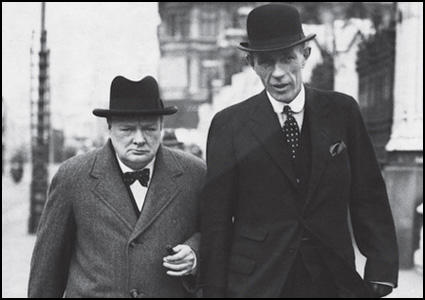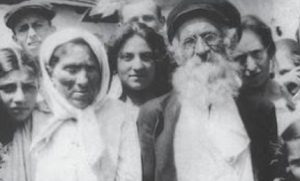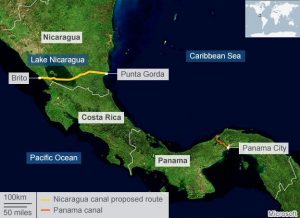Winston Churchill assumed the office of Prime Minister of the United Kingdom on 10 May 1940, just one day after Adolf Hitler marched his German forces into Denmark.1 What followed was a month of brutal bloodshed and agonizing uncertainty throughout the European continent. During this time, Churchill would find his nation on the brink of destruction, Hitler would see victory within his grasp, and a little known historical figure named Edward Wood, 1st Earl of Halifax would beseech his new Prime Minister to seek peace with the Nazi regime.2
Before Churchill took the job, Britain’s Prime Minister was a man named Neville Chamberlain. Chamberlain’s answer to the growing Nazi threat was the path of appeasement. He was not willing to throw his country into conflict so soon after World War I, and so he placated Hitler rather than openly opposing him. One of the most famous examples of this appeasement was the Munich Agreement. This pact, signed by France, Germany, Italy, and Great Britain in an effort to preserve peace on the European continent, effectively forgave Hitler for invading Czechoslovakia. Signed on 29 September 1938, the Munich Agreement stipulated that Hitler would not invade anymore countries; a promise he broke six months later. Blamed for the failure that was the appeasement strategy, Chamberlain was forced to step down from his position as Prime Minister. His successor was widely expected to be none other than his Foreign Secretary, Lord Halifax. Halifax declined the position. Though no one is exactly sure why, it is likely that Halifax felt that he was not suited to lead the country in time of war. 3 Therefore, the nation chose instead to turn to the man who had been the most vocal critic of appeasement: Winston Churchill. 4

Churchill had a daunting task before him as he took the office. Denmark had fallen, and all signs pointed to France following closely behind. One of his first acts as Prime Minister was to appoint a War Cabinet to advise him moving forward. As part of the Cabinet, Churchill appointed Neville Chamberlain as Lord President of the Council and asked Lord Halifax to keep his position as Foreign Secretary. 5 Churchill then sent the British Expeditionary Forces into France to help repel the Nazi invaders. Unfortunately, this move grossly underestimated German military capabilities, and British forces were in full retreat within a matter of weeks.
Since we know how the war ended, it is hard for us to fathom now just how dire Britain’s prospects were at the time. The Expeditionary Force was pinned on the Dunkirk Beach in France with seemingly no way of crossing the channel to get back to England. If the Germans managed to wipe out this force, which seemed imminent, Britain would have lost over 400,000 men and with them any hopes of ever stopping the Nazi conquest. In the face of utter annihilation, Churchill chose to stand firm. He ordered the commandeering of civilian boats to cross the channel and retrieve his soldiers, betting his country’s future on the long odds that these vessels could arrive before it was too late.6 Members of The War Cabinet did not share Churchill’s staunch optimism, most notable among them Lord Halifax.7 Halifax proposed a different tactic: a peace treaty with the Nazis. Halifax, being the skilled diplomat that he was, made contact Benito Mussolini, Prime Minister of Italy. Mussolini was willing to act as mediator so that Germany and the U.K. could sit down and negotiate terms for a peace agreement.8 From Halifax’s perspective this was the only way to ensure the survival of the troops trapped at Dunkirk, and the only way to save his beloved country. Though it seemed foolhardy at the time, Churchill refused to even consider peace negotiations.9 Luckily for him, and for our world, the civilian rescue mission succeeded, managing to bring most of the British troops home. Despite terrible odds, the United Kingdom lived to fight another day.

Assuming things had gone differently, and Churchill gave Halifax the go-ahead to broker a peace agreement, what might the treaty have looked like? The first thing to remember is, by all accounts, Britain was at the time posed to fall to German invasion. This meant that Halifax would have essentially been going to the negotiating table on his knees, making it unlikely that he could produce any favorable terms. Undoubtedly, Hitler would have used his advantageous bargaining position to get everything he wanted out of the deal. In exchange for safely getting the men out of Dunkirk, Nazis would have demanded that they be allowed to keep their conquered claims throughout Denmark, France, and other countries. Hitler also could have insisted that Britain not get further involved in the European conflict, allowing him to march towards Russia without worrying about the possibility of an active western front. Though it is impossible to measure whether 400,000 souls are worth such demands, it is important to keep in mind what precedent this would have set had the U.K. signed a peace treaty with Germany in Munich. Hitler took advantage of the Munich Agreement and disregarded it the moment he saw a tactical opportunity. Surely, no treaty Halifax could draft would have quelled the lust for power harbored by Hitler who stopped at nothing to establish a German world order. 10

All this we know thanks to well preserved historic records and the many biographies written since the war. We know that Churchill’s plan to resist at all costs did indeed pay off in the long run. But, looking at the events of the month of May 1940 through the eyes of the 1st Earl of Halifax, couldn’t one have concluded that the only hope for the United Kingdom was a final attempt at appeasement?
- Winston Churchill, The Gathering Storm (Boston: Houghton Mifflin Company, 1948). ↵
- Chris Hasting, “Lord Halifax tried to negotiate peace with the Nazis.” The Telegraph (August 30, 2008). ↵
- Andrew Roberts, The holy fox: a life of Lord Halifax (London: Papermac, 1992). ↵
- Ian Kershaw, Fateful choices: ten decisions that changed the world, 1940-1941 (London: Penguin Books, 2008). ↵
- Churchill, Winston. The Gathering Storm. (Boston: Houghton Mifflin Company, 1948), and Andrew Roberts, The holy fox: a life of Lord Halifax (London: Papermac, 1992). ↵
- Winston Churchill, The Gathering Storm (Boston: Houghton Mifflin Company, 1948). ↵
- Andrew Roberts, The holy fox: a life of Lord Halifax (London: Papermac, 1992). ↵
- Andrew Roberts, The holy fox: a life of Lord Halifax (London: Papermac, 1992). ↵
- Ian Kershaw, Fateful choices: ten decisions that changed the world, 1940-1941, (London: Penguin Books, 2008). ↵
- Arnold A Offner, “Appeasement Revisited: The United States, Great Britain, and Germany, 1933-1940.” The Journal of American History 64, no. 2 (1977): 373-93. ↵



90 comments
Robert Ruiz
Interesting article Matt, i never even considered the idea of a treaty during the war. I do in fact think that even if the treaty did get signed, nothing would of stopped Hitler and his motives. I also enjoyed the paragraph when you explained how the British troops were just merely saved by what I think was luck. Also, the map of Dunkirk in Northern France, showing the Straight of Dover from the United Kingdom was very helpful as well. Overall, I think you’re a great writer and enjoyed readying your article.
Rosa Castillo
I throughly enjoyed reading this article. I was intrigued by the title, because I have not read up on this particular topic. I was not aware of the grand significance of Winton Churchill as Prime Minister of Britain. The title brings in the reader to want to read more and discover the articles content. I believe the writing is well structured and entertaining to read. Over all this article was a great read.
Jose Sanchez
This article was a great read. I was never aware that this had even happened despite reading a lot of WW2 history. The question posed is also very interesting. To just even imagine what it must have felt like to have the fate of a country in one’s hands and against all odds is hard. Churchill was lucky as much as he was a fighter.
Samantha Luckey
I can imagine the fear that Western European countries endured towards the end of World War II. As you well described, imminent invasion by Nazi Germany was widely believed to be well within hand. As such, Churchill’s boisterous belief to contrary, and his adamant portrayal of possible British victory, was predominantly associated with him displaying erratic behavior. The relationship you described pertaining to Churchill and Halifax, was something I had not yet known. In the sense, that I had known that there were considerations to surrender. But I lacked the understanding of how close the surrender could have been a possibility. As you say, Churchill’s ability to hold-out against Hitler’s advancing army, was “the saving grace”, of this war story. But I wonder if you had you considered to include the United States involvement towards the end of the war. In the sense, that it was Churchill’s ability to hold-out, that allowed fresh-eyed Americans to enter the war, and ultimately end it.
Gabriela Murillo Diaz
This article about a potential treaty with the UK and Nazi Germany spiked my interest because it was a story I had never heard before. The article was extremely well written. Not only was the story itself a good one, but also the writing and explanation of it made the story even better. The last paragraph left me interested in what could have been if the United Kingdom had made the treaty.
Stephanie Nava
This article definitely makes the reader wonder what could have been. I like the title of this article, it hooks the reader in, and I like how the author ended it with question, because we will truly never know. I think if I was in Britain during this time period, I definitely would have been living in fear, however I probably would have agreed with Winston Churchill’s tactic. I can see why people would think that another treaty was a good idea, however, it was pretty obvious that Hitler was not a man of his word when it came to treaties, so even if he did sign a treaty, there was no way to trust him because of his past actions. I am glad to see that Churchill believed in his way of dealing with the situation.
Sebastian Carnero
Apart from the reason why Halifax declined the offer for Prime Minister, there are also some doubts about why the Nazis failed at reaching the 400 000 men. I understand both points of views on what to do in the Dunkirk problem, and because of that, this story is great. It made things seem as if defeat was more than certain. Reaching the place with civilian boats before the planes or German soldiers was unlikely, maybe Nazis got too confident on the situation and expected Britain to surrender. But whether the reason it was , one person standing for not giving up saved the world.
Angel Torres
Not only was it a well written article, but the images also complemented the story and helped the reader visualize the tough situation Britain was in. Its crazy to think that Halifax wanted yet another peace treaty after Hitler broke the first treaty they negotiated. I wonder how the World War 2 would’ve played out if Churchill favored appeasement when it came to the Nazis.
Cynthia Rodriguez
This article was very well-written. It was both interesting and informative. The title that you chose was intriguing and you selected some nice images. I thought that you raised some good questions. What would have happened if Churchill decided to go through with a peace treaty? Would it have still resulted in the rescue of the British troops? Or would it simply have been another broken promise? I personally think that it would have just been another disregarded treaty. The first appeasement approach did not work, so there really was not much hope for a second one. I’m just glad the troops were saved in the end.
Emily Jensen
As the article so aptly points out, it is difficult to imagine the dire situations that the troops faced during that time period, since we know the outcome of the war. The moral of those retreating troops was certainly not at its best. Interesting to know that Halifax wanted to enter into another peace treaty, even after Hitler had broken the first one. Great read!